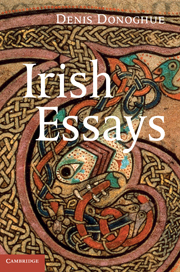3 - Swift and the association of ideas
Published online by Cambridge University Press: 05 June 2012
Summary
But now I would battle in the interests of orthodoxy, even of the commonplace; and yet could find nothing better to say than: “It is not necessary to judge every one by the law, for we have also Christ's commandment of love.”
He turned and said, looking at me with shining eyes:
“Jonathan Swift made a soul for the gentlemen of this city by hating his neighbour as himself.”
In March 1934 F. R. Leavis published “The Irony of Swift,” the essay which, more than any other, has persuaded many readers that Swift's mind is characterized by a peculiarly intense animus not accounted for by its objects. It is widely agreed that there is a quality of exorbitance in Swift's work, a force which issues, as if unprovoked, from the mind itself. Only one of Leavis's arguments in that essay has failed to gain much credence. The comparison of Swift and Blake, to Blake's advantage in point of intelligence, has not been taken up as a matter that can be profitably discussed. But the main burden of the essay, that the general character of Swift's irony is a case of extraordinary energy turned upon negation, has been received, it appears, with pleasure and relief; it is thought to be the crucial issue. We have in Swift's writings, Leavis says, “probably the most remarkable expression of negative feelings and attitudes that literature can offer – the spectacle of creative powers (the paradoxical description seems right) exhibited consistently in negation and rejection.”
- Type
- Chapter
- Information
- Irish Essays , pp. 59 - 76Publisher: Cambridge University PressPrint publication year: 2011



